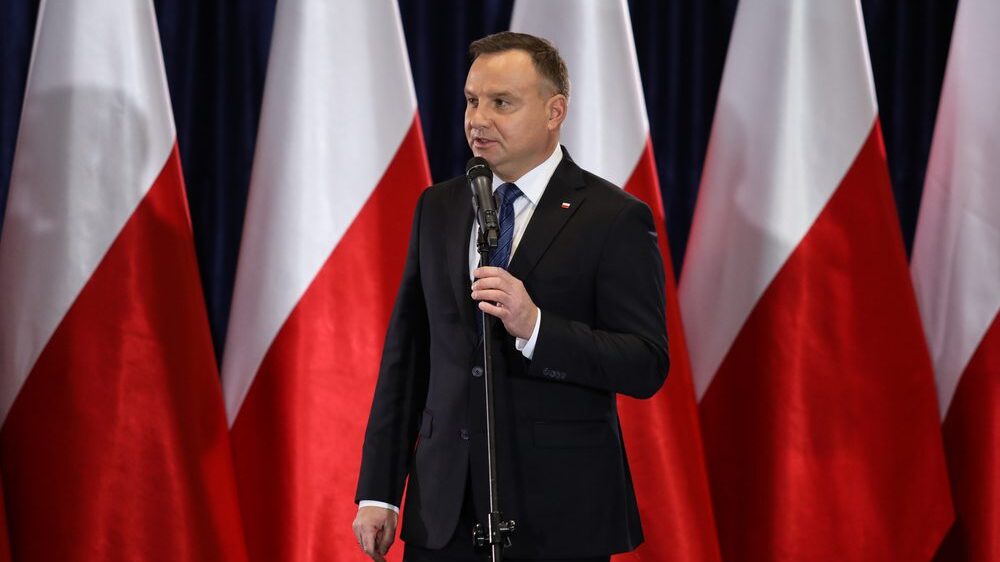
Polish President Andrzej Duda
Photo: Grabowski Foto / Shutterstock.com
Polish President Andrzej Duda (PiS) has announced that the country’s parliamentary election will take place on October 15th, officially kicking off the beginning of the election campaign which is poised to be contentious as issues surrounding the war in Ukraine—and the government’s response to it—take center stage.
“Guided by the content of the just received positive opinion from the State Electoral Commission regarding the proposed date of elections for the Sejm and Senate, I have decided to schedule these elections for October 15th, 2023. The future of Poland is everyone’s concern! Exercise your rights!” Duda wrote in a post on social media.
Weź udział w wyborach!!!
— Andrzej Duda (@AndrzejDuda) August 8, 2023
Kierując się treścią otrzymanej właśnie pozytywnej opinii Państwowej Komisji Wyborczej, co do proponowanego terminu wyborów do Sejmu i Senatu, podjąłem decyzję o zarządzeniu tych wyborów na dzień 15 października 2023 roku. Przyszłość Polski jest sprawą…
Poland’s ruling Law and Justice (PiS) party, which took power in 2015, will be seeking its third consecutive term in government. This election cycle is expected to be especially tough for PiS as it deals with increasing angst among the population over the economic and social fallout precipitated, in part, by the party’s staunch, no-limits support for Kyiv.
Poland, United Surveys poll:
— Europe Elects (@EuropeElects) August 2, 2023
ZP-ECR: 35% (+1)
KO-EPP|RE|G/EFA: 30% (+1)
Kon~NI: 14% (-1)
TD PL2050/PSL-RE|EPP: 11%
Lewica-S&D: 9% (-2)
AGROunia-*: 1%
+/- vs. 7-9 July 2023
Fieldwork: 29-30 July 2023
Sample size: 1,000
➤ https://t.co/TMumh6CCxH pic.twitter.com/kaArthGM3W
This time around, PiS will face off against increasingly popular opponents on its left and right flanks. Presently, the ruling party maintains a five-point lead over the Brussels-backed liberal opposition Civic Platform (PO) led by former Prime Minister Donald Tusk, which is polling at just under 30%.
Meanwhile, the two opposition coalitions to the left of Tusk’s Civic Platform pose less of a threat to the ruling party’s chances to remain in power. The Left alliance (Lewica), made up of several left-liberal, social democratic parties—including Razem, Wiosna, and Lewica Razam—is currently polling at just over 9%. The Third Way, comprising the liberal-centrist EU-federalist Poland 2050 party, and the agrarian, centrist Polish Coalition (KP), meanwhile sits at just over 11%.
The real thorn in the side of Jaroslaw Kaczyński’s party, however, comes from its right flank.
The rightist Confederation (Konfederacja) grouping, which has seen a significant uptick in support among Poland’s youngest voters (18 to 21-year-olds), has been siphoning off discontented PiS voters for some time now, especially following the onset of the Russo-Ukrainian war.
If current voting intention trends remain static, the Ukraine-critical right-wing coalition, polling at 13-14%, is predicted to be a kingmaker in this fall’s election, as the ruling PiS will almost certainly not be able to stitch together a parliamentary majority without its support.
